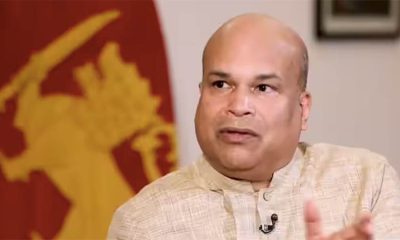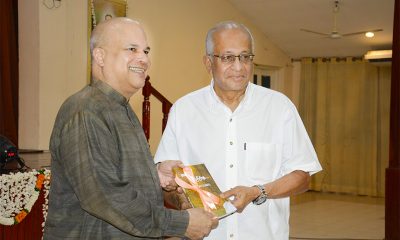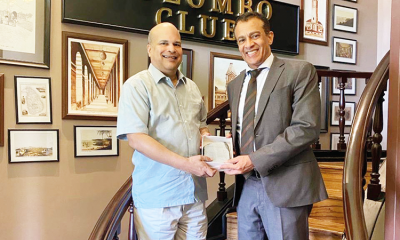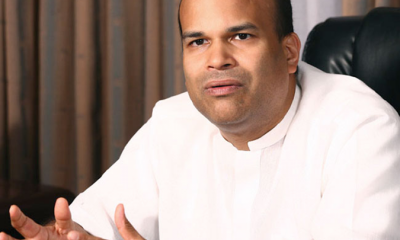News
Sri Lanka – thinking outside comfort zones to achieve progress
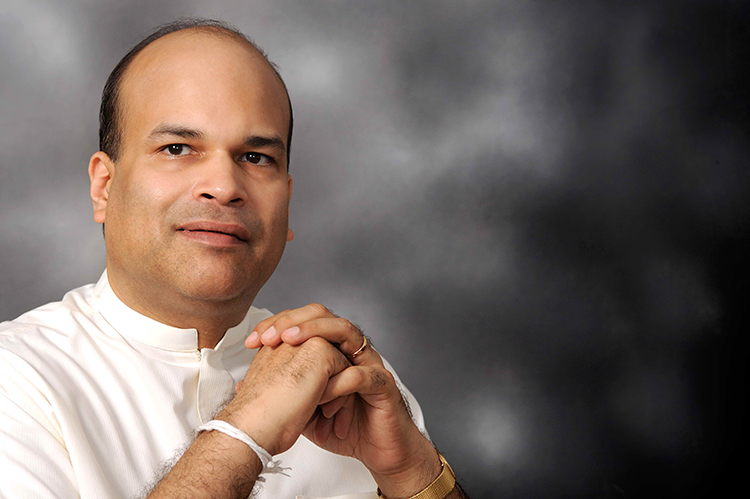
A proposal by Milinda Moragoda, founder of the Pathfinder Foundation, to all presidential candidates and political parties
Milinda Moragoda has issued a proposal addressed to all presidential candidates and political parties for growth by at least six percent per annum for the next ten years, twice the growth rate projected by Sri Lankan authorities and international economists emphasizing the need for ambitious economic goals, and introducing the proposed reforms as a roadmap for the nation’s future.
“Citizens should demand that candidates and political parties participating in these elections present clearly articulated policy platforms that will enable the electorate to make an informed choice at the polls. While many Sri Lankans speak and complain about corruption, its root cause lies in the fact that government and politics pervade every facet of our day-to-day lives. The first step towards fighting corruption is to reduce the size of the government. Small government is good governance,” Moragoda says in his proposal.
Full text: Background:
The presidential and possible parliamentary elections are expected to take place later in 2024 and will be the most important set of elections in our post-Independence history. Sri Lanka can come out of the prevailing economic and political crises only if leaders and citizens are willing to recognise that the economy will have to grow by at least 6% per annum for the next ten years, which is twice the growth rate projected by Sri Lankan authorities and international economists at the moment. At the presently forecasted growth rates, Sri Lanka will be forced to restructure its debt at regular intervals and muddle through for the foreseeable future. Social instability is also likely to continue and may even worsen, and our youth will have no future in this country. Citizens should demand that candidates and political parties participating in these elections present clearly articulated policy platforms that will enable the electorate to make an informed choice at the polls.
While many Sri Lankans speak and complain about corruption, its root cause lies in the fact that government and politics pervade every facet of our day-to-day lives. The first step towards fighting corruption is to reduce the size of the government. Small government is good governance.
Every crisis presents an opportunity, and every cloud has a silver lining. This could be the moment to change direction. To achieve this goal, Sri Lanka must think beyond the box and discard old paradigms, prejudices, and mindsets. With this in mind, fourteen suggested prerequisites to guide the country in a new and fresh direction are outlined below. These policy points could provide food for thought to aspiring presidential candidates and political parties as they prepare their respective policy platforms.
Downsizing Government:
1. Abolish the Executive Presidency and replace it with a Parliamentary model with a first-past-the-post electoral system.
2. Create an effective Upper House in the legislature that will focus on national integration and reconciliation, social equity, and levelling up among districts within the country.
3. Abolish Provincial Councils and empower local councils. The number of local councils should be reduced, and a district-level coordination mechanism should be established.
4. Reduce the size and scope of Government on a predetermined timeline. Increase the role of the private, non-governmental, and social sectors. All government ministries, departments, and agencies should be evaluated on zero-based budgets. Superfluous entities should be closed down. All bureaucratic obstacles and impediments to speedy decision-making should be removed. To help minimise corruption, increase transparency, and facilitate interaction between citizens and government, technology should be used, wherever possible.
Economic Growth & Reforms – Taxes, the Workforce & Infrastructure:
5. Modernise and reform the economy to achieve a growth level of at least 6% annually. This should include large-scale privatisation and all necessary reforms that will increase competitiveness and productivity to facilitate rapid export-led economic growth fuelled by foreign investment. Sri Lanka will also have to follow niche market-based strategies for exports. This, too, will require a strong focus on new technologies and skills development.
6. Develop a workforce fit for a competitive, outward-looking economy by upgrading education, training and skills development.
7. Achieve inclusive and regionally balanced growth by modernising agriculture and promoting SMEs, particularly by facilitating their links to domestic and international supply chains.
8. Announce a clear timeline to reduce the highest personal and corporate income tax rates to 20% and VAT to 10%. Property, wealth, and inheritance taxes should not be implemented. Import controls should be lifted, and customs duties should be reduced to make Sri Lanka a globally competitive economy. Sri Lanka should also, with minimum delay, establish a network of free-trade agreements globally and, through this process, become the primary logistics and trading hub for our region. The country should astutely navigate to position itself advantageously, taking into consideration present geopolitical realities and their impact on international trade, investment, and supply chains.
9. Implement a large-scale, foreign-funded 4-year infrastructure development programme along the lines of the Mahaweli scheme to build highway, railway, power, and multi-product petroleum pipeline connectivity between India and Sri Lanka. The present aviation and maritime connectivity with India should be upgraded, too. In this regard, we should leverage Sri Lanka’s locational advantage and historical international links to build a world-class hub in the middle of the Indian Ocean, as the country was for millennia in the past.
10.At the same time, the large-scale wind energy potential available off the northwest coast of Sri Lanka should be harnessed speedily without delay.Through this process, Sri Lanka should aim to become a net electricity exporter within the next decade. In addition, Sri Lanka’s potential as a hydrogen-energy hub should be tapped. Furthermore, Trincomalee should be developed as the region’s primary energy and petroleum hub.
11.If required, any existing agreements and understandings with the IMF or with other multilateral or bilateral organisations, as well as commercial creditors should be renegotiated to fit into the framework outlined above.
National Identity & Inclusive Development
12.To foster a sense of unity, shared national identity, and purpose, all youth must take part in a one-year mandatory national service programme when they reach the age of 18. They should be given the option of either serving in the armed forces or volunteering to serve the country in a structured community service programme.
13.Until Sri Lanka’s transition into a fast-growing economy is completed, every low-income household should receive a monthly payment sufficient to meet basic needs. The selection of these households must be done in a carefully targeted and transparent manner.
14.Our nation has an ancient civilisational history of which all Sri Lankans should be proud. We must draw on this rich and diverse history for inspiration and self- confidence in a meaningful and constructive way. Our diversity is a strength, not a weakness.
Latest News
Severe traffic reported on Ella-Wellawaya road due to inclement weather

Police urge motorists who intend to use the Ella – Wellawaya Road to use alternative roads as there is a severe vehicle congestion due to inclement weather condition.
Latest News
We should start working collectively to rebuild the country -PM
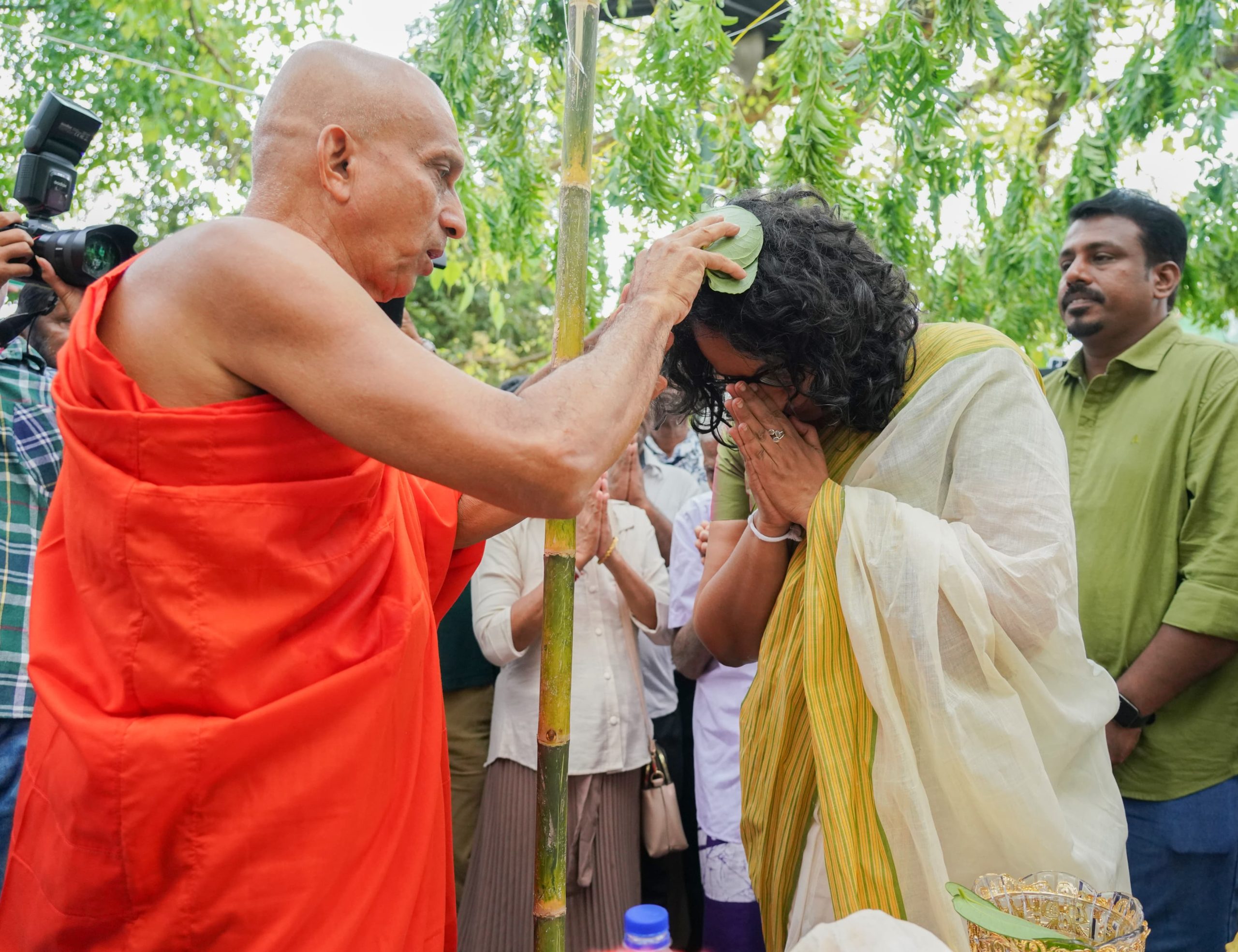
The oil anointing ceremony for the Sinhala and Tamil New Year was held on April 16 at the historic Rajamaha Viharaya in Kolonnawa, with the participation of Prime Minister Dr. Harini Amarasuriya.
Following the chanting of pirith, the oil anointing ritual was carried out at the auspicious time of 9:04 a.m., by the Chief Incumbent of the temple, Venerable Kolonnawa Dhammika Thero.
Speaking after the ceremony the Prime Minister said that:
“The Sinhala and Tamil New Year is one of the most important festivities in our country. It is a celebration with our families, reflecting our traditions and customs while strengthening the ties.
This festival leads the path for renewing unity, love, and bonds stronger. These values enrich a country. Development of a country is not limited by one-dimensional; a true development includes spirituality, relationships, and connections. The reason why we uphold these customs in such ceremonies is to remind ourselves of the significance and to pass on their value to future generations.
Therefore, today marks a significant day. Throughout this week, we came together and engaged in various activities. Followed by, the next event will mark the leaving for employment at the auspicious time and we should start working collectively to rebuild the country.
I wish everyone a New Year that is prosperous, peaceful, joyful, full of strengthened relationships, and most importantly, safe for all.”
The ceremony was graced by the presence of the Maha Sangha, and attended by the Deputy Minister of Youth Affairs Eranga Gunasekara, Divisional Secretary to Kolonnawa Priyanath Perera, Municipal Secretary Nelum Kumari Gamage, and the residents of the area.
[Prime Minister’s Media Division]
Latest News
Heat Index at ‘Caution Level’ at some places in Northern, North-central, North-western, Western, Southern and Eastern provinces and in Rathnapura and Monaragala districts today [16]
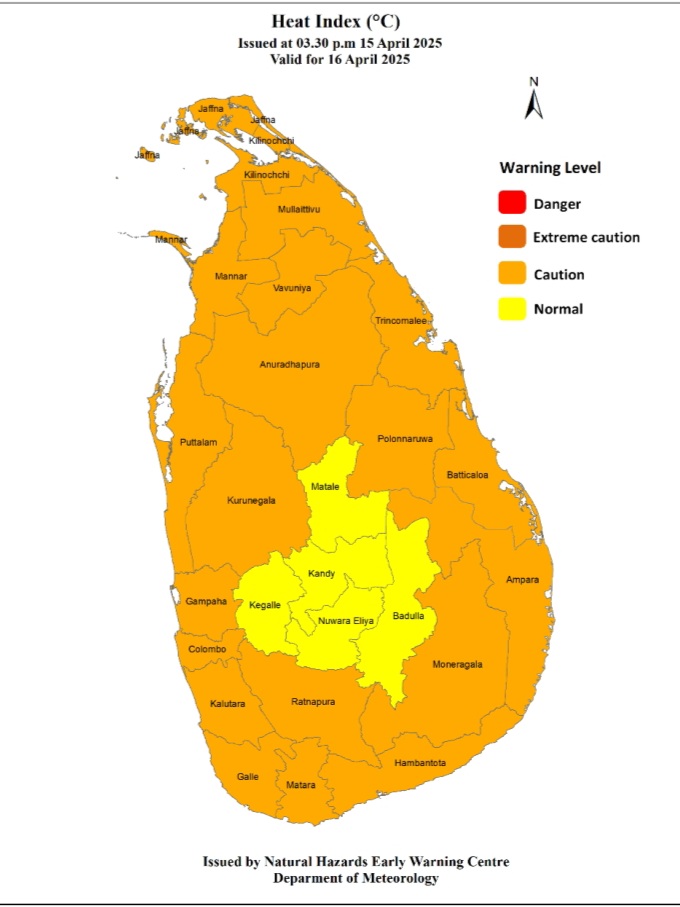
Warm Weather Advisory Issued by the Natural Hazards Early Warning Centre of the Department of Meteorology for 16 April 2025
The Heat index, the temperature felt on human body is likely to increase up to ‘Caution level’ at some places in Northern, North-central, North-western, Western, Southern and Eastern provinces and in Rathnapura and Monaragala districts.
The Heat Index Forecast is calculated by using relative humidity and maximum temperature and this is the condition that is felt on your body. This is not the forecast of maximum temperature. It is generated by the Department of Meteorology for the next day period and prepared by using global numerical weather prediction model data.
Effect of the heat index on human body is mentioned in the table below and it is prepared on the advice of the Ministry of Health and Indigenous Medical Services.

ACTION REQUIRED
Job sites: Stay hydrated and takes breaks in the shade as often as possible.
Indoors: Check up on the elderly and the sick.
Vehicles: Never leave children unattended.
Outdoors: Limit strenuous outdoor activities, find shade and stay hydrated. Dress: Wear lightweight and white or light-colored clothing.
Note:
In addition, please refer to advisories issued by the Disaster Preparedness & Response Division, Ministry of Health in this regard as well. For further clarifications please contact 011-7446491.
-

 News5 days ago
News5 days agoSuspect injured in police shooting hospitalised
-

 Features6 days ago
Features6 days agoRobbers and Wreckers
-

 Business6 days ago
Business6 days agoBhathiya Bulumulla – The Man I Knew
-

 Business5 days ago
Business5 days agoSanjiv Hulugalle appointed CEO and General Manager of Cinnamon Life at City of Dreams Sri Lanka
-

 Business7 days ago
Business7 days agoNational Anti-Corruption Action Plan launched with focus on economic recovery
-

 Features4 days ago
Features4 days agoLiberation Day tariffs chaos could cause permanent damage to US economy, amid global tensions
-
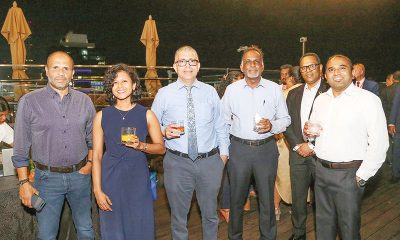
 Business4 days ago
Business4 days agoMembers’ Night of the Sri Lanka – Russia Business Council of The Ceylon Chamber of Commerce
-
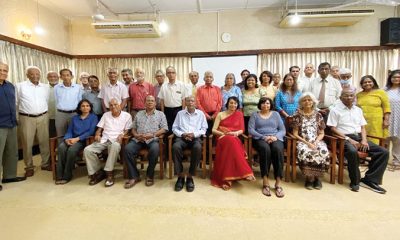
 Features4 days ago
Features4 days agoMinds and Memories picturing 65 years of Sri Lankan Politics and Society

